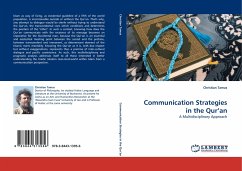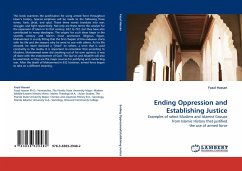
SHIA RITUALS
THE IMPACT OF SHIA RITUALS ON SHIA SOCIO-POLITICAL CHARACTER
Versandkostenfrei!
Versandfertig in 6-10 Tagen
32,99 €
inkl. MwSt.

PAYBACK Punkte
16 °P sammeln!
The extensive research in this book argues that Ashura rituals do not represent the embodiment of a culture of death; they represent a spiritual awakening, strengthening faith by condensing and intensifying religious events, and empowering the Shia identity. Ashura rituals are not merely rituals of lamentation or a source of salvation and redemption, but are an inspiring force with dynamic principles used as a popular platform to effect changes in the socio-political sphere. This book probes into the historical evolution, in form and content, of Ashura Rituals and reveals the three major stage...
The extensive research in this book argues that Ashura rituals do not represent the embodiment of a culture of death; they represent a spiritual awakening, strengthening faith by condensing and intensifying religious events, and empowering the Shia identity. Ashura rituals are not merely rituals of lamentation or a source of salvation and redemption, but are an inspiring force with dynamic principles used as a popular platform to effect changes in the socio-political sphere. This book probes into the historical evolution, in form and content, of Ashura Rituals and reveals the three major stages through which Ashura rituals have passed. This objective is accomplished by using a model derived from Emile Durkheim's social ritual theory that explains how rituals transform knowledge into belief and membership into belonging. It reveals how Ashura rituals are constructed, embraced, and evolved as well as how they are shaping Shia identity and communal sense. The analysis should help shed some light on Shia rituals and identity, and should be especially useful to policy makers and military leaders, or anyone seeking to understand Shia world.














